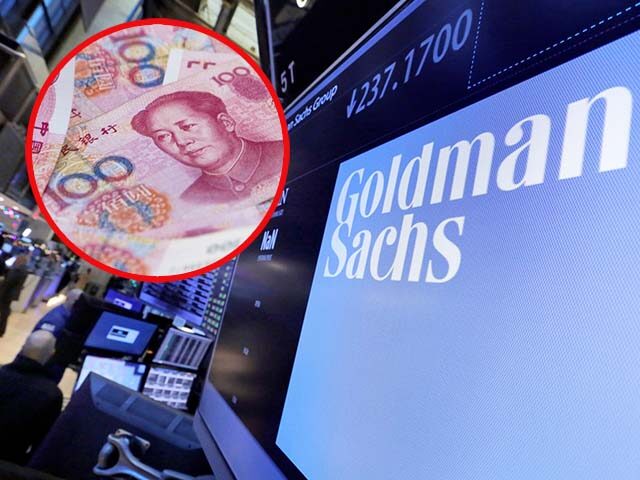Goldman Sachs downgraded its 2023 growth forecast for China from six percent to 5.4 percent on Sunday, joining financial institutions like UBS, Bank of America, Nomura, and JPMorgan that have made comparable downward revisions to their China growth forecasts over the past few weeks.
“With continued challenges from the property market, pervasive pessimism among consumers and private entrepreneurs, and only moderate policy easing to partially offset the strong growth headwinds, we mark down our 2023 real GDP forecast,” Goldman Sachs economists said on Sunday, giving much the same reasons as the other banks for their downgrade.
“With the reopening boost quickly fading, medium-term challenges such as demographics, the multi-year property downturn, local government implicit debt problems, and geopolitical tensions may start to become more important in China’s growth outlook,” the Goldman Sachs analysts said.
The most pessimistic overall forecast came from Japan’s Nomura, which forecast only 5.1 percent growth for China’s GDP by the end of the year. The gloomiest short-term predictions came from UBS, which thought growth could stall out to only one percent or maybe even zero, especially if China’s uneasy property market does not recover.
The Chinese government tends to angrily dismiss pessimistic predictions from foreign analysts as a conspiracy to destroy investor confidence in the economy, but the South China Morning Post (SCMP) noted there are indisputable signs of sinking consumer confidence in China, such as a rather muted annual two-week shopping festival that concluded on June 18.
The “618” shopping binge is one of the two most important retail sales festivals on the Chinese calendar, established in 2010 to coincide with the founding of e-commerce giant JD.com. JD.com itself claimed sales grew more than expected during this year’s 618 spree and other platforms said a record number of merchants participated in what was expected to be China’s great emergence from coronavirus lockdown doldrums – but the SCMP said the conspicuous “absence of total gross merchandise value numbers” from many vendors was a sign that “weak consumer spending in the world’s second-largest economy might be taking a toll on the country’s tech giants.”
“Alibaba shares fell 2 per cent in Hong Kong on Monday, while JD.com’s shares dropped 1.9 per cent,” the SCMP noted.
“Chinese consumer confidence remains weak due to a mix of geopolitics, continued weakness from Covid-19 and domestic Chinese politics,” said Shaun Rein, managing director of the Shanghai-based China Market Research Group.
Rein noted that heavy discounts have been offered to spur consumption and the sale prices during 618 were not much better than the standing discounts that have been in place since the pandemic.
Some analysts looked for a silver lining in sporadic accounts of increased spending in certain areas, such as luxury goods and cosmetics, to suggest Chinese consumers are spending some of the money they banked during the lockdowns when they could not go shopping, but they do not feel confident enough to make the volume of purchases Beijing was hoping for during 618. Anecdotal evidence suggested consumers did a lot of online window shopping by watching product videos but did not make as many purchases.
The Chinese Communist regime tacitly admitted the economic outlook for 2023 and beyond has taken a turn for the worse by speaking openly about massive new stimulus measures. Premier Li Qiang and his State Council said on Friday that policies to stimulate demand should be “implemented without delay.”
Measures expected by foreign economists included more rate cuts, fewer restrictions on property buyers, and subsidies for certain products.
“These measures may not turn things around, due to weak confidence, negative sentiment, the huge fiscal cliff due to the collapse of land sales, clogged transmission channels, a shrinking toolbox, slow decision-making on economic matters and conflicts among multiple targets,” Nomura’s chief China economist Lu Ting said in response to these predictions of Beijing’s policy remedies.
In their public statements, Chinese officials insisted the post-pandemic recovery remains on track, with only minor adjustments needed.
“China’s overall economy is rebounding and improving, with recovering market demand, climbing output and supply, stable prices and employment, and solid advancement in high-quality development,” the State Council said.

COMMENTS
Please let us know if you're having issues with commenting.